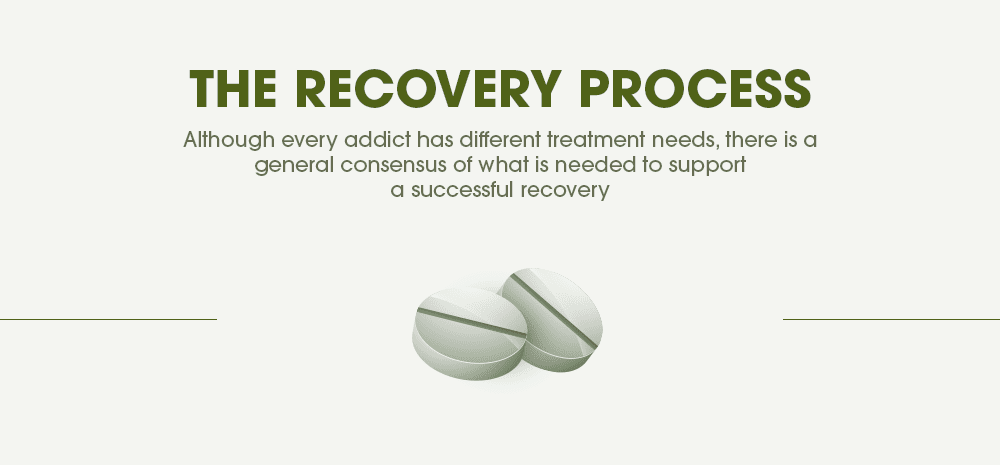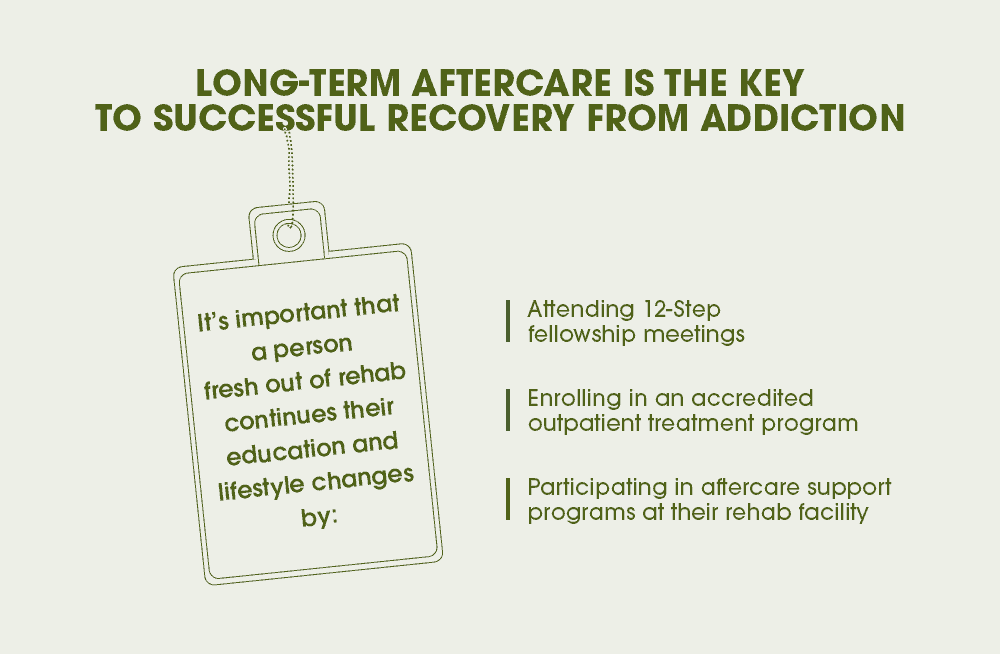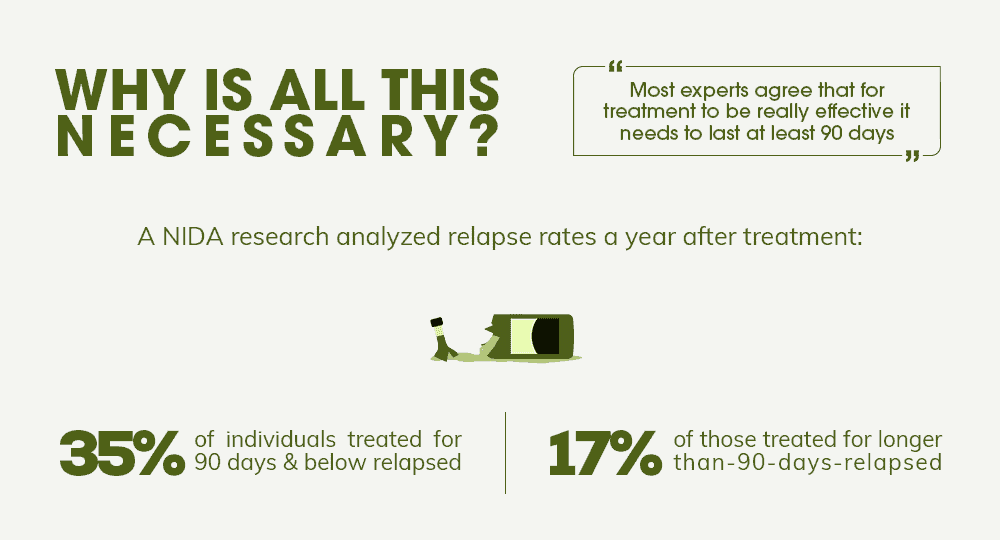It’s a wonderful paradox – often, people in substance abuse disorders will drag their feet and delay ever admitting that they have a problem or that they need to get help. But when they DO finally make those admissions, they want the best, most effective drug/alcohol treatment as fast as humanly possible. If you are like most people who are ready to begin their own personal sober journey, you are probably feeling confused right now and anxious about your choices. When the residential rehab program you’re considering offers a 30-day treatment program, a question will naturally arise in your mind, especially if you have a long history of substance abuse – “Is 30 days enough to help ME?” 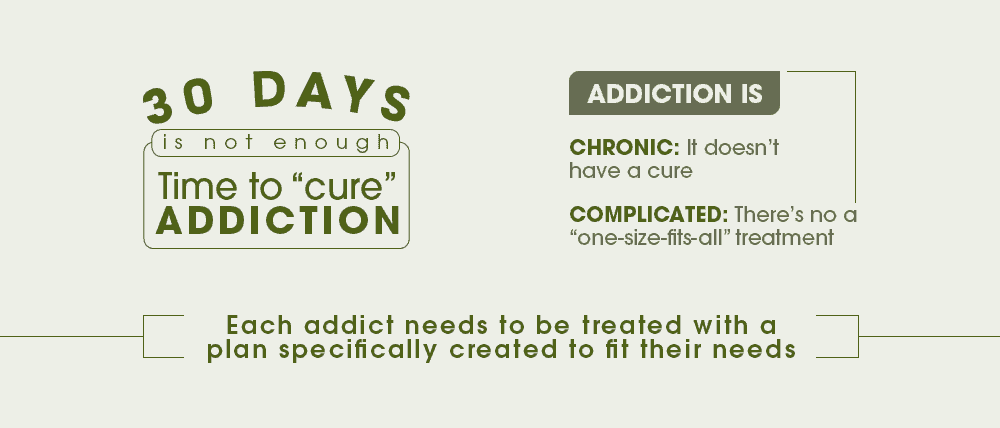
The Reality about Recovering from Drug or Alcohol Addiction
In one word – YES. Now, let’s qualify that answer – 30 days is ABSOLUTELY NOT enough time to “cure” you of your addiction, for two reasons:
- There is no cure for addiction – Addiction is a lifelong disease that, with timely intervention, effective treatment, and fundamental lifestyle changes, can be managed, thereby allowing the individual to live a happy, productive, “normal” life.
- Addiction is a complicated disease – Just as there is no one single identifiable cause for addiction, there is also no such thing as a “one-size-fits-all” treatment protocol. The best treatment strategies are always tailored to the individual in order to maximize their chances of successful sobriety.
Just as addiction is, in part, a learned behavior, recovery FROM an addiction is also a learning process – the substance abuser must be taught how to substitute healthy, sober beliefs and behaviors for destructive, dysfunctional, drug-driven ones.
A 30-day program is not enough to secure your sobriety, but it IS enough time to give you the information and tools that you will need to change your life.
First Things First – Take Your Recovery from Addiction Step-By-Step
Let’s talk about the residential “recovery process” for a moment. Again, although every person with a substance abuse disorder has different treatment needs as an individual, there is a general outline of what services are needed to support a successful recovery. 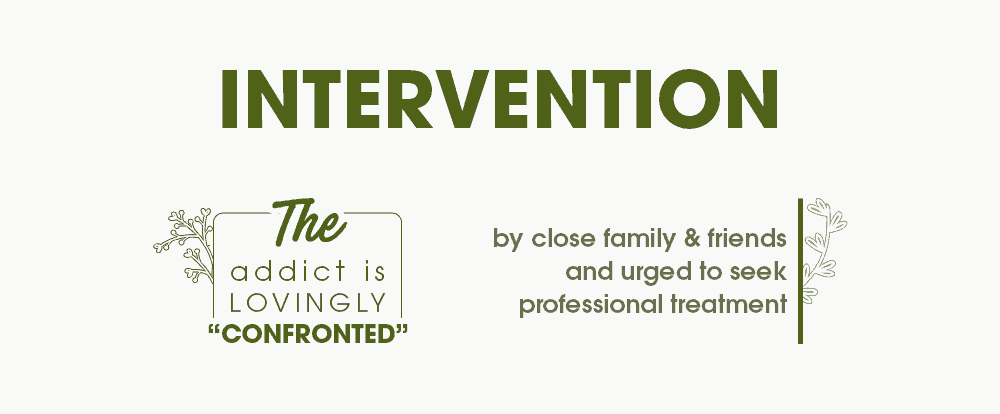
- Intervention – This is the process by which an active addict/alcoholic is lovingly “confronted” by close family and friends and compelled to seek professional treatment.
- Drug/Alcohol Detoxification – This is a medically-supervised period of abstinence that allows the body to purge itself of alcohol and intoxicating drugs.
The newly-sober individual – who is nearly always physically dependent upon their drug of choice by this point in their addiction – will usually experience harshly unpleasant withdrawal symptoms during the first few days and weeks of abstinence. Experienced medical staff should be on hand to oversee a safe withdrawal process that is as comfortable as possible.
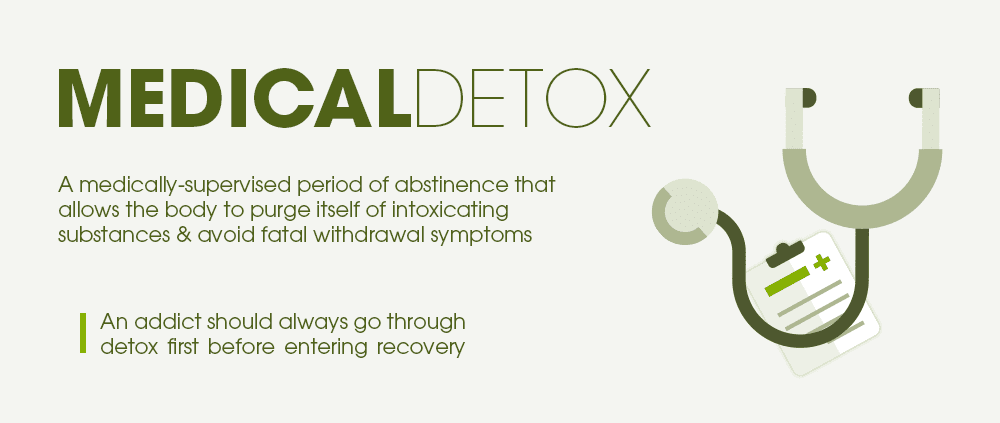
It is important to remember that a detox is NOT part of recovery. Rather, it is an extremely important “pre-step”, because a person who is still actively physically dependent on a substance will not be able to receive and process the information presented in a rehab program.
- 30-Day Residential Rehab Program – During your stay at an inpatient drug or alcohol rehab program, you will experience an intensive series of education, therapies, and exercises designed to support a new, sober life:
- Education about the disease of addiction
- Individual psychotherapy to deal with any “core” issues
- Group counseling to address issues common to most people with substance abuse disorders
- Evaluation and treatment for any co-occurring psychiatric conditions, such as PTSD, depression, anxiety, etc.
- Trauma processing
- Nutritional therapy
- Medication-assistance
- Trigger avoidance
- Relapse prevention
- 12-Step fellowship meetings
- Communication skills
- “Alternative” strategies – yoga, meditation, massage, exercise, art/poetry therapy, pet/equine therapy, etc.
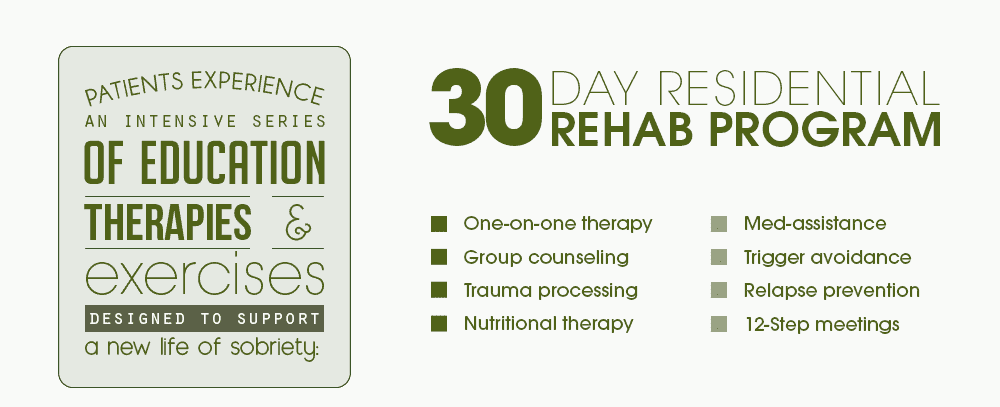 As you can see even from this very basic list, a person enrolled in a 30-day addiction recovery program is kept extremely busy. It takes a lot of education and a lot of work to learn how to change one’s addictive behaviors. But while the services offered by the best addiction recovery programs are comprehensive in terms of attacking the disease of addiction on multiple levels, it is by no means expected to be as comprehensive in terms of retention and successful practice by the patient once the program is complete. This is why continuing aftercare is so important for a person in recovery from drug addiction or alcoholism.
As you can see even from this very basic list, a person enrolled in a 30-day addiction recovery program is kept extremely busy. It takes a lot of education and a lot of work to learn how to change one’s addictive behaviors. But while the services offered by the best addiction recovery programs are comprehensive in terms of attacking the disease of addiction on multiple levels, it is by no means expected to be as comprehensive in terms of retention and successful practice by the patient once the program is complete. This is why continuing aftercare is so important for a person in recovery from drug addiction or alcoholism.
Long-Term Aftercare Is the Key to Successful Recovery from Addiction
A person who has “graduated” from a 30-day addiction recovery program is ready to take their first, tentative steps on their sober journey, but now, diligence is more important than ever. They have the information and the tools they need, but they haven’t had much chance to use what they have learned in everyday, real-world situations. It is important that a person fresh out of inpatient rehab continues their education and their lifestyle changes by:
- Enrolling in an accredited outpatient drug/alcohol treatment program
- Attending 12-Step fellowship meetings, such as Alcoholics Anonymous, Narcotics Anonymous, or Celebrate Recovery
- Participating in any aftercare support programs offered by their residential rehab facility
Why Is All This Necessary – Why Isn’t 30 Days Enough?
Most experts in the field of addiction science agreement that for treatment to truly be effective, it must last a MINIMUM of 90 days. In fact, time in treatment can predict how successful an individual’s continued recovery will be:
- Per the Los Angeles Times, more than a third of people who drop out of treatment before 90 days have elapsed will relapse within the first year.
- Another study demonstrates that treatment of less than 90 days results in relapse rates equivalent to treatment of just one or two days.
- Alternately, just 17% of those who participated in treatment programs lasting 90 days or more suffer relapses within the first year.
Although there is no “magic number” days that a person must stay in alcohol/drug treatment to forever overcome their addiction, it is obvious that time equals success. Considered in that light, it seems that an investment in time (substance abuse treatment) is actually an investment in the future (sobriety).
What Did you Think About This Blog?
Give it a Rating!

